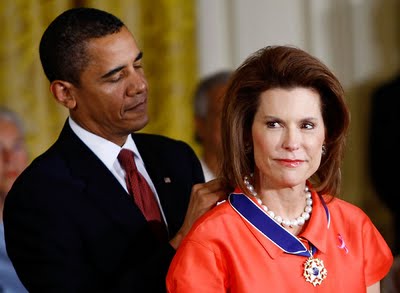
DETROIT - In a city where over a quarter of its residents are unemployed, and almost 30,000 of them are either on probation or out on parole, Detroit is looking to put ex-convicts back to work. On Wednesday, the city held an "Offenders Only" Job Fair at the East Lake Church.
Detroit City Council President Charles Pugh organized the job fair, along with Wayne County Community College and Kelly Services. Pugh, a former television and radio personality in his first term on the council, has been advocating for job opportunities for convicted felons since he took office in 2010.
The city council has even gone as far as trying to get the question 'Have you ever been convicted of a felony?' removed from job applications in Detroit.
"That group (ex-convicts) has difficulties finding jobs," Pugh said in an
interview with Detroit Public Radio on Thursday. "A lot of times, folks who come out (of jail) and get roadblock after roadblock and door closed, they give up and some of them re-commit crimes because they feel that's their only option."
The job fair featured up to 200 potential job openings from employers, and the only people allowed a shot at the jobs had to have a felony on their record. Pugh feels that the lack of job opportunities for felons, including violent felons, leads to recidivism.
"In this tough job market, we know that it is difficult, regardless of whether you have a felony or not, to find a job," Pugh said. "But we feel that population needs just a boost of confidence and some hope that there are employers out there who will give them second chances."
A
Pew Center survey on recidivism found that it actually declined in Michigan by 18 percent between 1999 and 2004 because of a dramatic drop in the return of technical violators. However, returns to prison for new crimes jumped by almost 21 percent during the period.
Since 2007, the Michigan Department of Corrections' numbers show that parolees are returning to prison 33 percent less frequently. One of the organizations that offered assistance at the job fair was the Detroit-based non-profit organization Focus: HOPE.
Founded in 1968 as a way to ease the racial tension in the aftermath of the Detroit riots, Focus: HOPE provides educational and vocational training options for people with low incomes as well as assistance with food for those who are struggling.
"Our primary courses of study would be advanced manufacturing, which helps individuals to train to become computer numerical control machinists and the other is information technology," said Julian Pate, the Director of Education at Focus: HOPE since 2002. "These paths can ultimately end up with a Bachelor's Degree."
Focus: HOPE also has machinist training and medical assistant programs that are open to anyone, regardless of their criminal history or education. They have recently launched a program in conjunction with the "Earn & Learn" programs that is centered on black males ages 18-24 who have recently been incarcerated or chronically unemployed.
"What we're doing is trying to prepare people for the workplace," Pate said. "It might be janitorial services, or individuals who are trying to put themselves on a sustainable footing and be trained along the way.
"It's what we call 'work readiness training.' For four weeks we will be exposing them to the broad range of what it means to be a customer service worker, as well as to help them identify the course of study they may be interested in."
What do you think? In today’s tough job market, is it fair to have a jobs fair for convicted felons only?
The program will work with potential employers to supply subsidized employment for the former offenders that will allow them to keep training and make money at the same time. The hope is that the offender is able to get hired on at the business after the training period ends.
Detroit is not the first city to hold job fairs for ex-convicts. In Cleveland, similar job fairs have been held, led by an organization named Breaking The Cycle.
"It is disheartening because this community is in need of jobs, and there are plenty of people who want to work," said Michael Jones, the head of Breaking the Cycle. "But then no one wants to give a shot to someone with a past."
The group has held yearly "Offenders Only" job fairs since 2009. Breaking the Cycle even sends attendees' resumes to businesses that did not attend the events.
In Detroit, Focus: HOPE's partnership with Earn & Learn will be a two-year program that will help up to 1,100 young black men in southeast Michigan. Any companies associated with the program would be bonded so any liability that could come from bringing a former felon in to their business would be minimized.
"Individuals that have been involved in violent crimes (including sex offenses), crimes against children, and homicides will not be considered for entry," Pate said. "Only one of our programs (IT) has a requirement of having no felony convictions on your record. That's primarily because of the IT industry's rules on security."
There were over 1,200 people in attendance, with 500 being pre-registered and interviewed. Pugh said that there were 200 jobs given out at Wednesday's job fair, a startling number considering that many job fairs in Detroit geared toward non-offenders and college graduates often do not hire or offer any employment.
"It was a huge success because over 200 people got jobs," Pugh said. "There were people from transportation companies, cleaning services, the City of Detroit was there with job opportunities. It was an opportunities to give people who have had difficulties a second chance."
These job fairs have not been universally well received. The city has insisted that it is trying to lure and keep college graduates in Detroit, yet has not made any efforts as aggressive as these to host job fairs for students and recent grads who make up a large percentage of the new unemployed in the city and in the state.
"Simply put, if the city can do this for convicts -- which, I think, they shouldn't have done in the first place - then they can certainly do this for recent grads," said Ann Harris, a Detroit native who holds a Bachelor's Degree from Wayne State University."I've had to struggle for every job I've ever had, and yes, I've been passed up over someone who's less educated than me."
Michigan has seen a mass exodus from the state of college graduates in the last decade with two of the state's largest schools, Michigan State University and the University of Michigan, pumping out largest numbers. Chicago is home to the largest concentration of MSU Alumni in the country, while 53 percent of Michigan grads leave the state after graduation due to the lack of opportunities here.
"Just because someone says they have reformed doesn't mean that they have," said Harris, who works as a department specialist for the city of Dearborn's Public Libraries and is currently pursuing her Master's degree. "They need to go through the same job seeking process as the rest of us--if someone doesn't hire them because they've spent time in jail, oh well."
"Back in 2002, it wasn't hard for me to find a job," said Courtney Smith, 31, a 2002 graduate from Wilberforce University, who is currently finishing her Master's Degree in social work at Wayne State. "What was difficult for me was finding a job in the field of communications. I could not find one at all."
"It was difficult or me to find the part time job that I have now, but I think it will be easier for me to find employment once I get my Master's. But this is Michigan and jobs are scarce so it will be very competitive."
Focus: HOPE picked up 60 applicants to their programs at the job fair. They will be given the same testing processed that anyone would receive, with their criminal history being irrelevant to their entering.
"Our programs are open to anyone," Pate said. "Even though we're located in Detroit, we're not geocentric. We have had applicants in the past from out of state. Because we're in a highly African-American community doesn't mean we're restricted there either."
"We are open to providing opportunities to anyone that is looking for them. We really say that fundamentally, the only restrictions that we have is that you have a highs school diploma or GED, and that you are drug-free. That's where the conversation starts."
Pugh says that the city is organizing a second Offender's Only Job Fair that is tentatively set to take place in January. There has been no word yet on whether there will be any similar job fairs for college graduates -- who city officials have made a point of saying they are trying to lure back to Detroit -- and non-offenders looking for work in Detroit.
"In the meantime, there will be job readiness fairs that will help people to be employed," Pugh said. "I have heard employers, and ex-offenders say this is a second chance and they don't want to mess that up. Compared to people who don't have felonies, they realize that the job market is slim for them...even slimmer."
"There are
tax breaks and incentives to hire people with felonies. I hope that employers will become educated about the benefits to their business for hiring somebody who used to be in prison or has a felony on their record. It could help your bottom line."




























